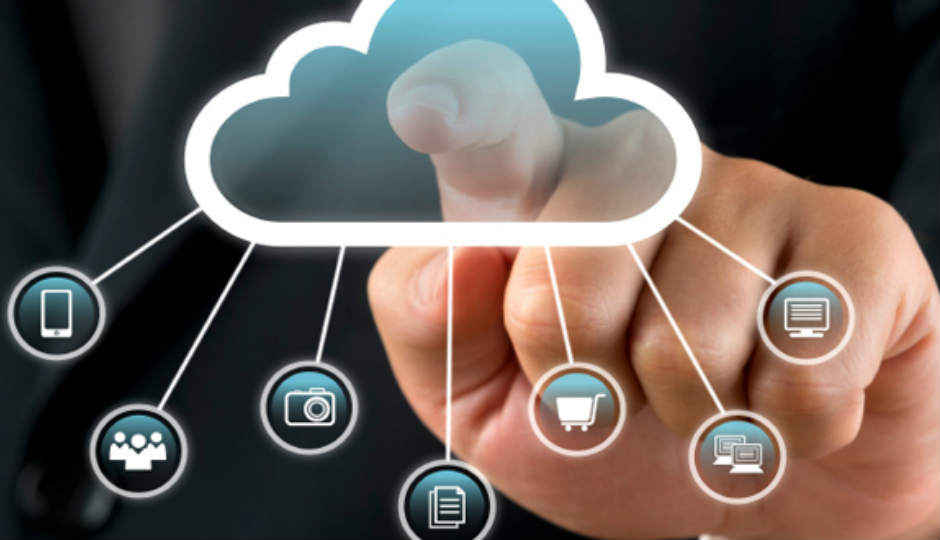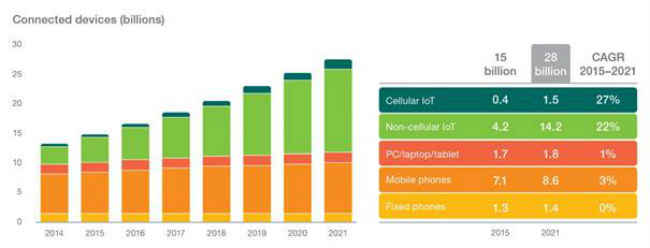Ericsson says, Internet of Things will overtake mobile phones by 2018

Ericsson's latest mobility report predicts that the number of IoT connected devices will grow to 16 billion by 2021. But, will they?
Internet of Things (IoT) has been a buzzword for the past few years, with a sharp increase in the number of connected devices globally. As our homes and cities get smarter, IoT is all set to play a crucial role in life as we know it. From our homes to public conveniences, transport to energy solutions, personal and public safety, the Internet of Things will drive the very evolution of society in the future.
This is probably why, Ericsson, in its latest mobility report, has predicted that IoT will overtake mobile phones by 2018. The report also forecasts that the number of IoT connected devices will grow to 16 billion by 2021. Last year, Cisco had predicted that there will 50 billion connected devices by 2020, while Gartner had prophesied 20 billion things to be connected to the internet by 2020.
It's tough to believe these reports because of the vast discrepancy of data between them, nevertheless, they seem to be the only indicator of the growth of IoT devices in the future.
Ericsson's latest mobility report further notes, "Between 2015 and 2021, the number of IoT connected devices is expected to grow 23 percent annually, of which cellular IoT is forecast to have the highest growth rate. Of the 28 billion total devices that will be connected by 2021, close to 16 billion will be IoT devices."
The report also states that Western Europe is expected to lead the way when it comes to adding more IoT connections. The number of IoT devices in this market are expected to grow 400% by 2021. The surge Western Europe's IoT industry is expected to be led by the growing demand for connected cars, including the EU e-call directive, which is to be implemented in 2018.
Rima Qureshi, Senior Vice President & Chief Strategy Officer, Ericsson, says: "IoT is now accelerating as device costs fall and innovative applications emerge. From 2020, commercial deployment of 5G networks will provide additional capabilities that are critical for IoT, such as network slicing and the capacity to connect exponentially more devices than is possible today."
As far as India is concerned, Ericsson expects mobile data traffic to grow fifteenn-fold by 2021, and that globally, 90% of mobile data traffic will come from smartphones. The report goes on to add that India grew the most in terms of net additions during the quarter (+21 million), followed by Myanmar (+5 million), Indonesia (+5 million), the US (+3 million) and Pakistan (+3 million).
Predictions galore, it is a given that big data and IoT will only see an upward spike thanks to new LTE, 5G network rollouts, along with the ever growing number of smart, connected devices. But, whether IoT will surpass mobile phones in the next 2 years is a big question mark as of now.





